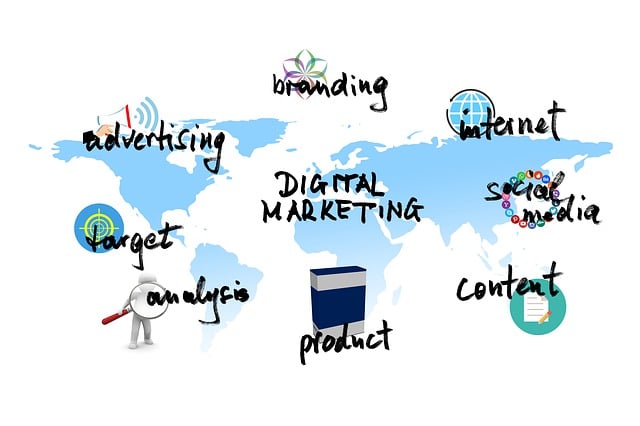Artificial Intelligence (AI) is transforming auto repair shops by offering advanced algorithms and machine learning techniques that streamline operations, enhance efficiency, and improve customer satisfaction. Key benefits include automated diagnostics, reduced errors, predictive maintenance, and improved customer engagement via AI-powered virtual assistants. Implementing AI involves identifying areas for integration, choosing suitable tools, seamlessly integrating them, providing staff training, monitoring performance, and considering specialized AI growth coaching to stay ahead in the industry. This coaching includes tailored training on AI fundamentals, practical applications, and ethical considerations, empowering employees to adapt and utilize AI tools effectively.
“Unleash the transformative power of AI in your auto repair business! This comprehensive guide navigates the growing integration of artificial intelligence, offering insights on its pivotal role and diverse applications. From streamlining diagnostics to enhancing customer engagement, AI is revolutionizing workshops. We provide a step-by-step approach for owners eager to embrace this technology, ensuring a smooth transition. Additionally, discover strategies for coaching and training staff to master AI tools, fostering a culture of continuous learning and growth in the ever-evolving automotive landscape.”
- Understanding AI's Role in Auto Repair: Benefits and Applications
- Implementing AI: A Step-by-Step Guide for Shop Owners
- Coaching and Training: Preparing Your Team for AI Integration
Understanding AI's Role in Auto Repair: Benefits and Applications

Artificial Intelligence (AI) is transforming various industries, and the auto repair sector is no exception. As AI continues to evolve at a rapid pace, its integration into auto repair businesses offers significant advantages and opens up new possibilities for owners looking to stay ahead in the market. With AI growth coaching, auto repair shop owners can harness the power of advanced algorithms and machine learning techniques to streamline their operations, enhance efficiency, and improve overall customer satisfaction.
One of the key benefits is its ability to automate repetitive tasks such as diagnosing vehicle issues, suggesting repairs, and even ordering parts. This not only saves time for mechanics but also reduces errors, ensuring faster and more accurate service. AI can analyze vast amounts of data from vehicles’ sensors and historical repair records, providing valuable insights to predict potential problems. Moreover, AI-powered virtual assistants can improve customer engagement by offering real-time updates, scheduling appointments, and answering common queries, thereby fostering a modern and efficient image for the business.
Implementing AI: A Step-by-Step Guide for Shop Owners

Implementing Artificial Intelligence (AI) in your auto repair shop is a strategic move that can boost efficiency and customer satisfaction, putting your business ahead of the competition. Here’s a simple step-by-step guide to help auto repair shop owners integrate AI:
1. Identify Needs: Begin by assessing your shop’s current processes and pain points. Pinpoint areas where AI could streamline operations, such as scheduling appointments, managing inventory, or diagnosing vehicle issues more accurately. This initial step ensures that you focus on the most impactful applications of AI.
2. Choose AI Tools Wisely: With numerous AI solutions available, select tools tailored to your specific needs. For instance, AI-powered diagnostic software can aid in faster and more precise identifications of mechanical problems. Natural Language Processing (NLP) chatbots can handle customer inquiries, while machine learning algorithms can optimize inventory management.
3. Integrate and Train: Once selected, integrate the chosen AI tools into your existing systems seamlessly. Provide adequate training to your staff to ensure they understand how to use these new technologies effectively. This step is crucial for maximizing the benefits of AI adoption.
4. Monitor and Adapt: After implementation, closely monitor the performance of your AI systems. Analyze their impact on various aspects of your business, including work efficiency, cost savings, and customer retention. Regularly update and refine your AI strategies based on this data to stay aligned with your shop’s evolving needs and market trends.
5. Seek Growth Coaching: Consider hiring AI growth coaches who can provide expert guidance tailored to the auto repair industry. These professionals can help you navigate the complexities of AI integration, ensuring that you make informed decisions to optimize your shop’s performance using cutting-edge technologies.
Coaching and Training: Preparing Your Team for AI Integration

As AI continues to grow and transform industries, auto repair businesses must prepare their teams for its integration. This starts with comprehensive coaching and training programs tailored to address both technical skills and soft skills required in a data-driven environment. AI growth coaching for auto repair shop owners should focus on educating staff about the fundamentals of AI, how it applies to their specific tasks, and fostering an understanding of ethical considerations surrounding its use.
Effective training should also empower employees to adapt and thrive in a changing landscape. It involves hands-on experience with AI tools relevant to auto repair, such as predictive analytics for maintenance predictions or machine learning algorithms for diagnostic support. By combining theoretical knowledge with practical applications, auto repair shop owners can ensure their team is well-prepared to leverage AI’s potential, enhancing efficiency, precision, and customer satisfaction in the process.
AI is transforming the auto repair industry, offering significant advantages from streamlined diagnostics to efficient inventory management. By implementing AI strategies, auto repair shops can enhance operational efficiency, improve customer satisfaction, and stay competitive in a rapidly evolving market. As we’ve explored through this guide, understanding your shop’s unique needs, providing adequate training for staff, and adopting a structured approach are key steps towards successful AI integration. With the right AI growth coaching tailored to auto repair shop owners, businesses can unlock new levels of productivity and profitability.
